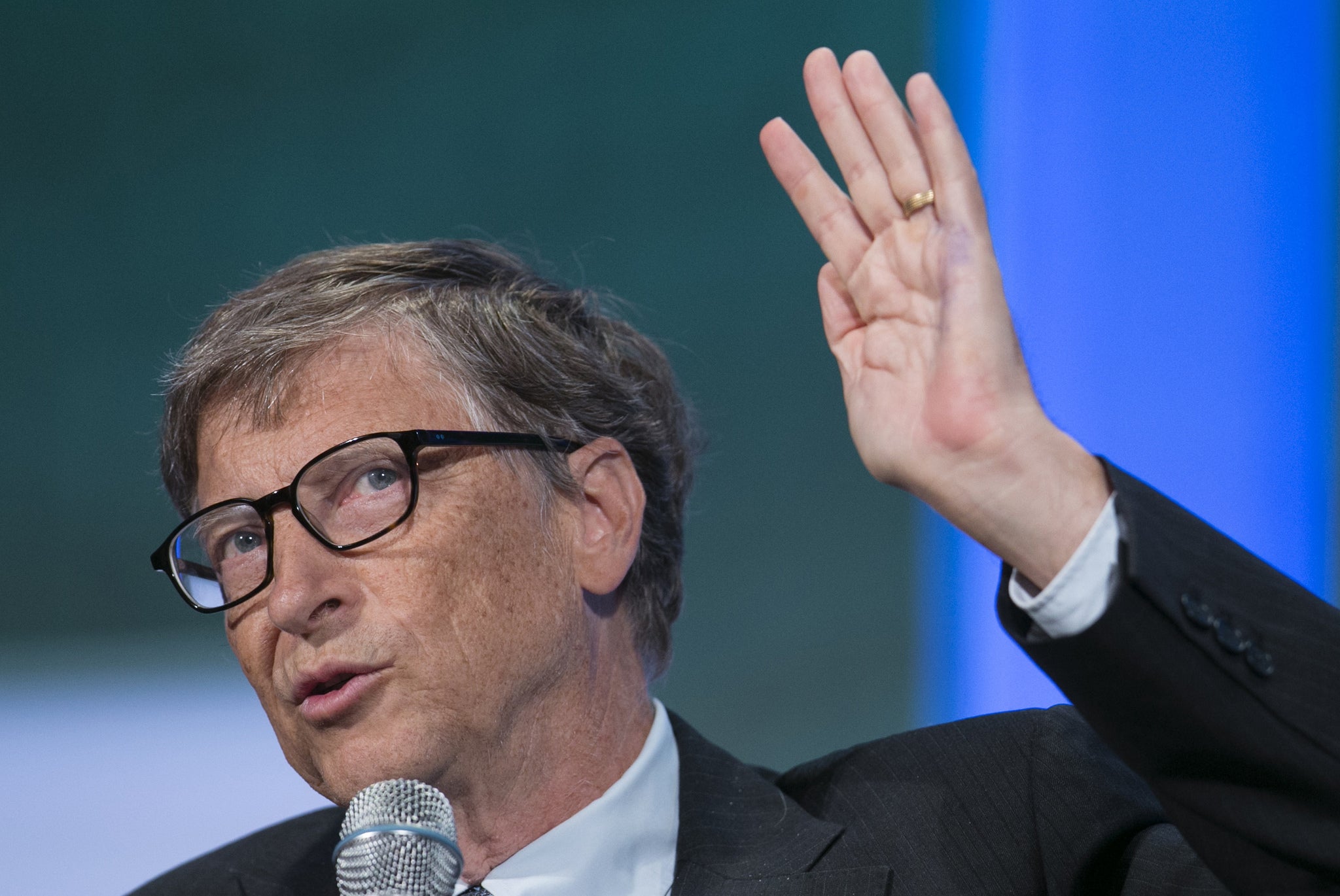Microsoft investors call for Bill Gates' departure
Sources within the company have reported that three major shareholders are worried that Gates' influence might obstruct future changes

Bill Gates is reportedly under pressure to step down as chairman of Microsoft, the company he founded 38 years ago.
Sources familiar with the matter informed Reuters that three of the software giant’s top 20 investors were concerned that Gates wields power that is disproportionate to his declining shareholding.
Although Gates remains the company’s largest single shareholder owning approximately 4.5 per cent of the $277 billion company, he sells around 80 million shares annually under a pre-arranged plan. At this current rate Gates would be left with no financial stake in the software giant by 2018.
The three investors have requested that their identity be kept secret but sources report that they collectively hold more than 5 per cent of the company’s stock.
They are worried that Gates’ position as chairman might limit the power of a new chief executive to make sweeping changes to the company.
Microsoft has begun looking for a new CEO after Steve Ballmer announced in August that he would retire from the position in 12 months’ time. Ballmer made his last company speech to over 13,000 staff last month, tearfully describing Microsoft as “the greatest company in the world.”
Ballmer has long faced pressure from investors to improve the company’s performance and share price but this is the first time that Gates has been targeted in a similar manner.
Gates acted as Microsoft CEO until he passed on the role to Ballmer in 2000, relinquishing his day-to-day duties at the company in 2008 to focus on the Bill & Melinda Gates Foundation, a philanthropic organisation with a $38 billion endowment.
Despite their apparent displeasure with Gates, the investors involved in the campaign are reportedly still keen to carry on with Ballmer’s plans to restructure the company, announced in July. Ballmer called for “one strategy, one Microsoft” with a new focus placed on services and devices.
This strategy can be most clearly understood through the recent redesigns of Microsoft’s livery, with each of the coloured panes in the company’s logo now corresponding to a key product. Blue represents the Windows operating system; green for Xbox and Xbox Live; red has been assigned to Office, and yellow now stands for Bing.
Microsoft remains one of the world’s most valuable technology companies, reporting a net profit of $22 billion in the last fiscal year. Despite this, many analysts believe that the company failed to anticipate the swing towards mobile devices in the consumer market.
Tablets and smartphones are expected to outsell traditional PCs for the first time ever in the final quarter of 2013, though this will be due primarily to holiday shopping, with PC sales still expected to beat those of mobile devices over next year as a whole.
Microsoft’s attempts to move into the market have so far been underwhelming. The Surface range of tablets launched last year suffered a $900m writedown for unsold inventory, though the devices have been refreshed for 2013.
Microsoft’s mobile platform Windows Phone is still massively outperformed by both Android and iOS in terms of global market share, though recent figures suggest that the OS’s fortunes are on the rise.
Reaction from shareholders to the possible ousting of Gates have been mixed. Todd Lowenstein, a portfolio manager at HighMark Capital Management, which owns Microsoft shares, described it as “long overdue”, whilst Kim Caughey Forrest, a senior analyst at Fort Pitt Capital Group suggested that Gates should in fact be returned to a large role.
"I've thought that the company has been missing a technology visionary," Forrest said. "Bill (Gates) would fit the bill." This sentiment has been echoed by others including tech writer Farhad Manjoo.
Writing for The Independent and Slate, Manjoo argues that Gates should be re-appointed as CEO, saying: “Only he has the institutional authority to liberate Microsoft from the Windows/Office golden noose. Only he could outline some new plan for the firm and command the troops to get in line.”
(additional reporting by agencies)
Join our commenting forum
Join thought-provoking conversations, follow other Independent readers and see their replies
Comments
Bookmark popover
Removed from bookmarks